-
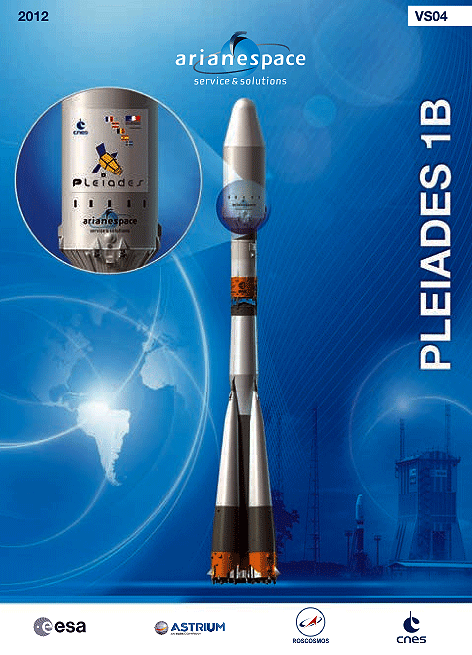
Arianespace's fourth Soyuz for launch from the Spaceport in French Guiana is now undergoing final checkout for a November 30 evening liftoff following installation of its Pleiades 1B observation satellite atop the medium-lift vehicle.
Pleiades 1B's mating with Soyuz occurred during the second half of yesterday, only hours after this Russian-built vehicle was rolled out to the launch pad in the Spaceport's northwestern sector.
The satellite was fitted as part of an integrated payload "stack," consisting of the very-high-resolution optical spacecraft, the Fregat upper stage that will place it into a circular orbit, and the Soyuz ST fairing.
This activity occurred inside the 53-meter-tall mobile gantry that provides a protected environment for the vertical payload installation - which is one of the main differences in launcher handling at the Spaceport compared to the horizontal processing of vehicles on Soyuz launch sites at the Baikonur Cosmodrome in Kazakhstan and Plesetsk Cosmodrome in Russia.
The dual-use Pleiades 1B spacecraft has a fueled mass of approximately 1 metric ton, and is designed to offer optical imaging coverage for French and European defense ministries, institutions and civil users.
Operating from a 695-km. circular orbit, it will join the twin Pleiades 1A satellite launched by Arianespace last December on Soyuz' second mission from the Spaceport. Both spacecraft were built by the Astrium division of EADS.
France's CNES space agency is prime contractor and architect for the Pleiades system, which is part of a joint effort with Italy's Cosmo-Skymed satellite series, which provides radar imaging coverage of the Earth.
Participants in the Pleiades program are the space agencies of France, Austria, Belgium, Spain and Sweden; along with the defense ministries of France, Italy and Spain.
-
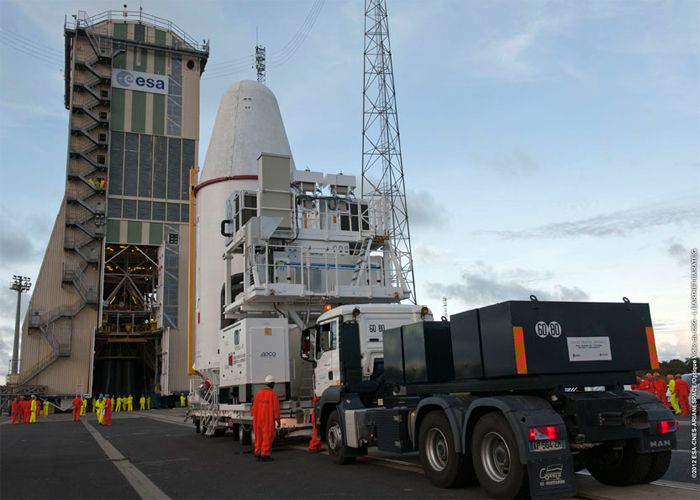
-
The integrated payload “stack” – consisting of Pléiades 1B, the Fregat upper stage and Soyuz ST fairing – is aligned for its subsequent hoisting to the mobile gantry’s upper levels (photo at left). After reaching the work stand area in the gantry’s top section, the payload “stack” is then moved into position for mating to the Soyuz launcher
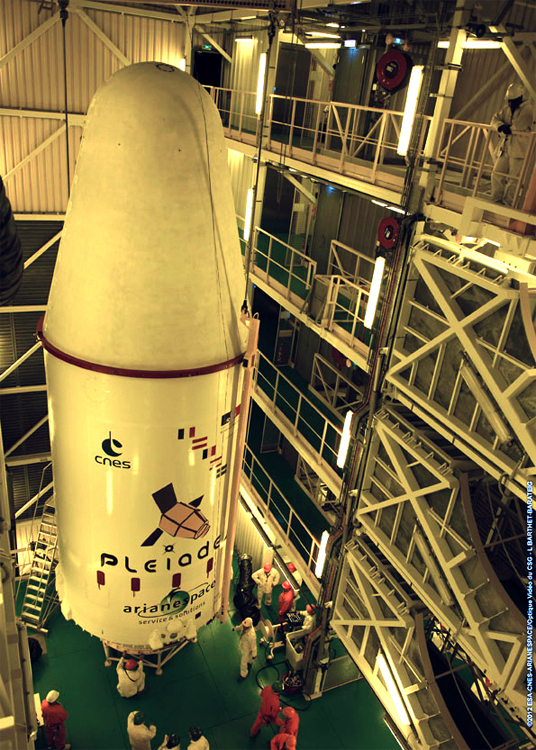
-

-
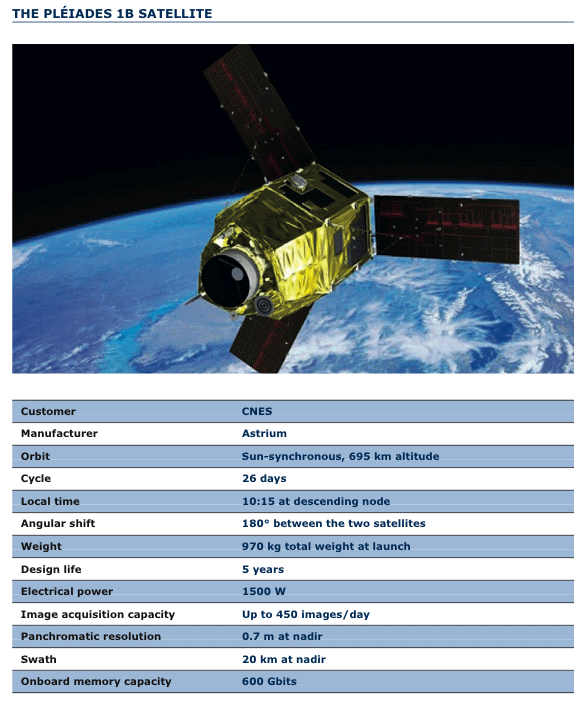
Quelle: arianespace
-
Update: 1.12.2012
-
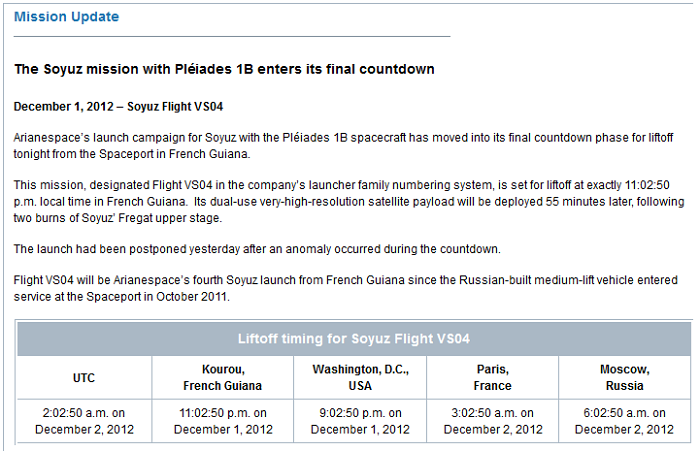
5068 Views

